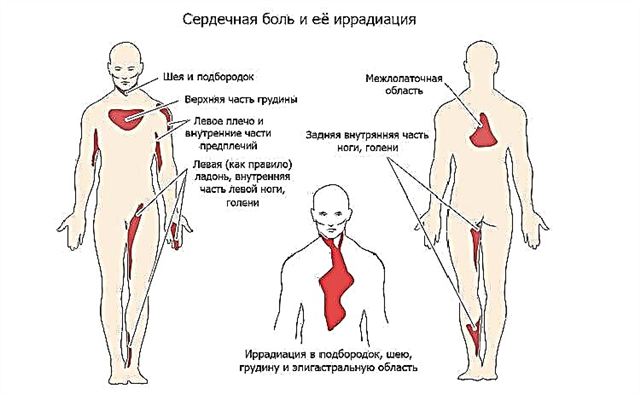By coughing, the body tries to protect itself from irritants that affect the cough receptors. With the help of this useful reflex, dust, smoke and harmful contents are removed from it, which accumulates in the respiratory tract. If it is not treated in time, the sputum density will increase and it will become protracted. Stagnating in the bronchi, sputum provokes the development of the inflammatory process. And this can subsequently lead to complications - bronchitis or pneumonia.
There are 2 types of cough: dry or wet. They differ mainly in that when dry, the mucous membrane lining the pharynx and larynx becomes inflamed, and when wet, a lot of mucus is formed in the bronchi. Dry, as a rule, are treated with antispasmodic and emollients, and wet - with expectorant drugs. For treatment to be truly effective, it is important to be able to distinguish between dry and wet cold coughs, and also not to confuse it with an allergic cough.
How to recognize dry
By a dry cough, you can recognize the onset of almost any cold ailment (it can be ARVI, pharyngitis, tracheitis or bronchitis). Typically, it is debilitating and does not bring relief. Sputum does not stand out with it. The reason for its occurrence is the abundance of thick mucus produced as a result  inflammation of the nasopharynx and larynx. Eliminate this symptom with drugs from the antitussive category. They soothe and soften irritated pharyngeal mucosa and relieve bronchospasm.
inflammation of the nasopharynx and larynx. Eliminate this symptom with drugs from the antitussive category. They soothe and soften irritated pharyngeal mucosa and relieve bronchospasm.
There are a number of distinguishing features by which a dry cough can be recognized:
- It manifests itself in the form of seizures. Each attack is characterized by an abrupt onset and an equally abrupt end. Sounds like a dog barking.
- A cough attack catches up suddenly - sometimes it may even seem that something foreign has got into the respiratory tract.
- The duration of one attack can be 3-5 minutes. During this period, a person experiences difficulty breathing, it is difficult for him to take a full breath.
- Interferes with sleep at night. Seizures can happen so often at night that the person cannot get enough sleep.
- Often causes vomiting, because the reflexes of coughing and vomiting in humans are interconnected.
- The phlegm is not coughing up.
- Even after the seizure is over, relief is not felt. On the contrary, pain in the chest can be felt - the result of intense contraction of the muscles and bronchi.
Guided by the above features, you can understand how to distinguish a dry cough. Those who have already dealt with different types feel the difference in sputum separation. They know that if the cough comes on in fits and the phlegm is not coughing up, it should be treated as soon as possible. Otherwise, it will turn wet.
Characteristics of wet
A wet (wet) cough in most cases appears after a dry one. The main reason is the accumulation of sputum in the tracheobronchial tree, as well as in the lungs. Doctors call it productive because it helps remove mucus from the lungs, which is an ideal breeding ground for harmful microbes.
If a wet cough does not subside for a long time, and the sputum thickens and coughs up worse, this indicates that the disease has become chronic.
 To intensify coughing up, the phlegm needs to be liquefied by means of special preparations - mucolytics. They have a combined effect: they reduce the thickness of sputum and help to speed up its removal from the body. A wet cough, unlike a dry one, brings tangible relief to a person. In addition, the result is obvious - in the form of expectorated sputum.
To intensify coughing up, the phlegm needs to be liquefied by means of special preparations - mucolytics. They have a combined effect: they reduce the thickness of sputum and help to speed up its removal from the body. A wet cough, unlike a dry one, brings tangible relief to a person. In addition, the result is obvious - in the form of expectorated sputum.
There are several distinctive features:
- After the end of a coughing attack, a person feels a clot of mucus that has risen from the bronchi in his mouth and a desire to spit it out.
- Immediately before a coughing attack, the person again feels that mucus has accumulated. This is precisely why there is a desire to cough.
- At rest or during sleep, wheezing is heard. In some cases, shortness of breath may occur.
If coughing attacks occur frequently enough, they can provoke pain in the abdomen and back. If, by coughing, a person cannot cough up phlegm, there is a risk of getting it into the stomach. In some cases, this can lead to nausea and vomiting.
It is not recommended to suppress coughing attacks, because with their help the body is cleansed of the harmful contents of the respiratory tract. It should be treated with expectorants. In order to get rid of a wet cough as quickly as possible, it is necessary to do inhalations and be sure to increase the amount of fluid consumed.
What are the differences
Many people do not understand the difference between a wet and dry cough. But dry and wet coughs have their own distinctive features, which we mentioned above.
Different types can differ literally at the first coughing. However, in most cases, draw a clear line from the very onset of the disease  extremely difficult. Moreover, given that the body of each person is individual. First, there is a slight cough of an incomprehensible type, and only then a full and quite distinguishable dry or wet cough begins.
extremely difficult. Moreover, given that the body of each person is individual. First, there is a slight cough of an incomprehensible type, and only then a full and quite distinguishable dry or wet cough begins.
How to distinguish a dry cough? First, because of the occurrence. As already mentioned, it appears as a result of inflammation of the mucous membrane of the larynx and nasopharynx. It is not at all difficult to verify this. The reason for the appearance of wet is sputum, which grows from the inside of the respiratory tract. If the cough is dry, there is simply nothing to cough up. In addition, it is associated with soreness in the chest. His attacks bring the person to exhaustion. It is one of the first symptoms of most colds of an infectious nature.
A wet cough often accompanies serious respiratory illness. He, like dry, can also be painful and debilitating. However, after coughing up, there is always relief.
It is curious that a dry cough without proper treatment turns into a wet cough, as harmful microorganisms from the nasopharynx go down. But the reverse transformation (wet to dry) is impossible.
What is the difference between dry allergic and dry cold cough
If you start coughing, but are not sure if you have a cold, it is worth considering the allergic nature of your cough. How to understand: is it a symptom of a cold or an allergy? An allergic reaction can be recognized by the following signs:
 Cough attacks are debilitating. Sometimes it seems that it is simply impossible to completely clear your throat. The reason is irritation of the bronchial mucosa with any allergen and laryngeal edema. A person cannot breathe fully. In addition, there is no phlegm, and there is no relief after the attack.
Cough attacks are debilitating. Sometimes it seems that it is simply impossible to completely clear your throat. The reason is irritation of the bronchial mucosa with any allergen and laryngeal edema. A person cannot breathe fully. In addition, there is no phlegm, and there is no relief after the attack.- During a coughing attack, a person suffers from shortness of breath. Choking may occur, accompanied by fear and even panic.
- An allergic reaction proceeds without headache, fever and chills (all these symptoms are characteristic of a cold).
- The cough can be accompanied by lacrimation, rhinitis, and skin reactions.
- The ability to strengthen under a certain condition. For example, if an irritant appears nearby (scent of perfume, pet hair, etc.).
- It is seasonal (spring hay fever).
- Conventional antitussives do not help. But antihistamines are effective.
In children, it comes "complete" with nasal itching, rhinitis, sneezing and breathing difficulties. Its main difference from a cold is that the body temperature remains within normal limits.
If, after contact with any substance, a cough constantly occurs, this is one hundred percent allergy. But if you cannot say for sure which irritant triggered the allergic reaction, you will need to diagnose and identify it.
Post factum
Distinguishing between dry and wet cough is absolutely not difficult. It is necessary to do this at least in order to be properly treated. After all, those medicines that are effective in combating a wet cough are completely useless for eliminating a dry cough. And vice versa.
 It should always be remembered that with a cold, a dry cough first appears, and only then it transforms into a wet one. It is necessary to react to these changes in a timely manner. If you take antitussive drugs inappropriately, there is a fairly high risk of complications.
It should always be remembered that with a cold, a dry cough first appears, and only then it transforms into a wet one. It is necessary to react to these changes in a timely manner. If you take antitussive drugs inappropriately, there is a fairly high risk of complications.
Thus, you need to know as much as possible about dry and wet coughs (meaning their distinctive features and methods of treatment). However, if you still find it difficult to determine the type of cough, it is advisable to consult your doctor. An experienced specialist will immediately identify it, make a diagnosis and prescribe adequate treatment.

 Cough attacks are debilitating. Sometimes it seems that it is simply impossible to completely clear your throat. The reason is irritation of the bronchial mucosa with any allergen and laryngeal edema. A person cannot breathe fully. In addition, there is no phlegm, and there is no relief after the attack.
Cough attacks are debilitating. Sometimes it seems that it is simply impossible to completely clear your throat. The reason is irritation of the bronchial mucosa with any allergen and laryngeal edema. A person cannot breathe fully. In addition, there is no phlegm, and there is no relief after the attack.

